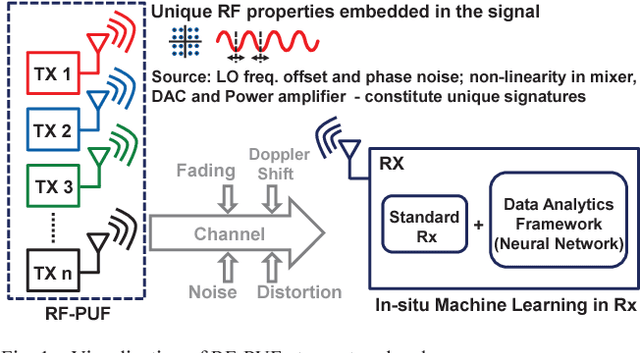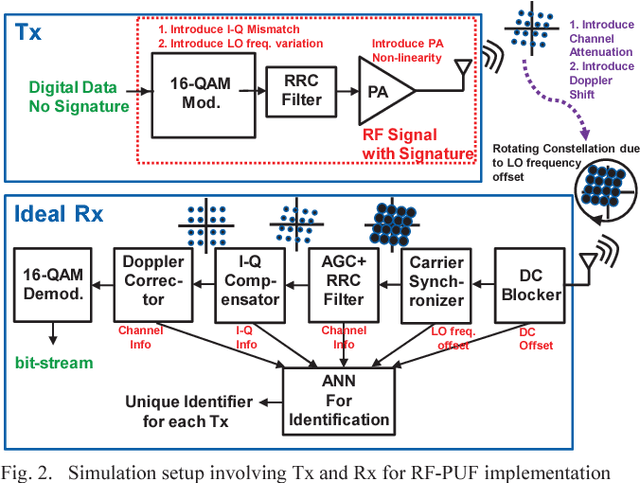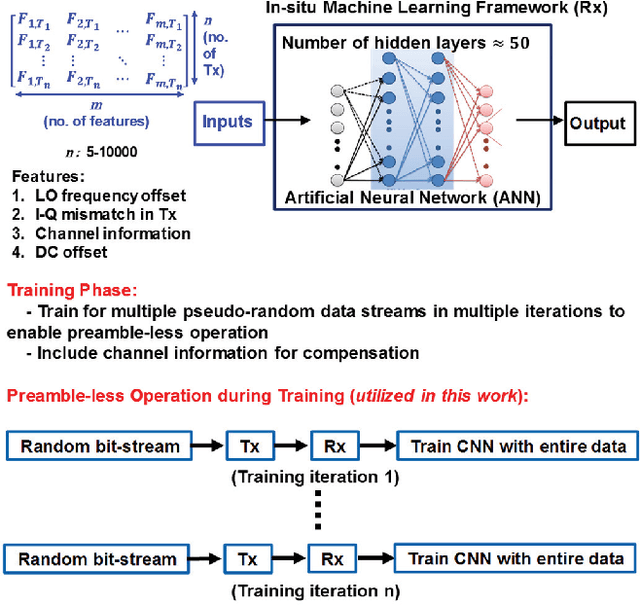RF-PUF: IoT Security Enhancement through Authentication of Wireless Nodes using In-situ Machine Learning
Paper and Code
May 02, 2018



Physical unclonable functions (PUF) in silicon exploit die-to-die manufacturing variations during fabrication for uniquely identifying each die. Since it is practically a hard problem to recreate exact silicon features across dies, a PUFbased authentication system is robust, secure and cost-effective, as long as bias removal and error correction are taken into account. In this work, we utilize the effects of inherent process variation on analog and radio-frequency (RF) properties of multiple wireless transmitters (Tx) in a sensor network, and detect the features at the receiver (Rx) using a deep neural network based framework. The proposed mechanism/framework, called RF-PUF, harnesses already existing RF communication hardware and does not require any additional PUF-generation circuitry in the Tx for practical implementation. Simulation results indicate that the RF-PUF framework can distinguish up to 10000 transmitters (with standard foundry defined variations for a 65 nm process, leading to non-idealities such as LO offset and I-Q imbalance) under varying channel conditions, with a probability of false detection < 10e-3
 Add to Chrome
Add to Chrome Add to Firefox
Add to Firefox Add to Edge
Add to Edge